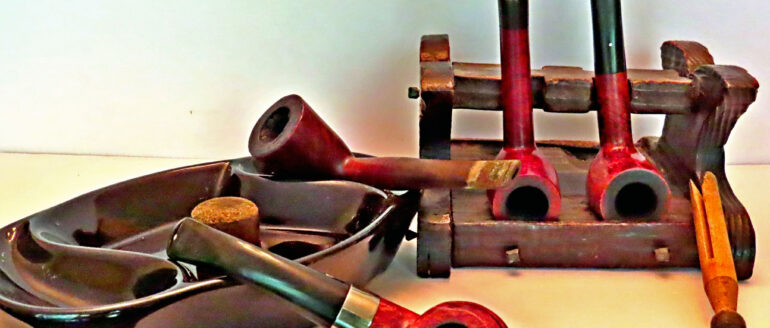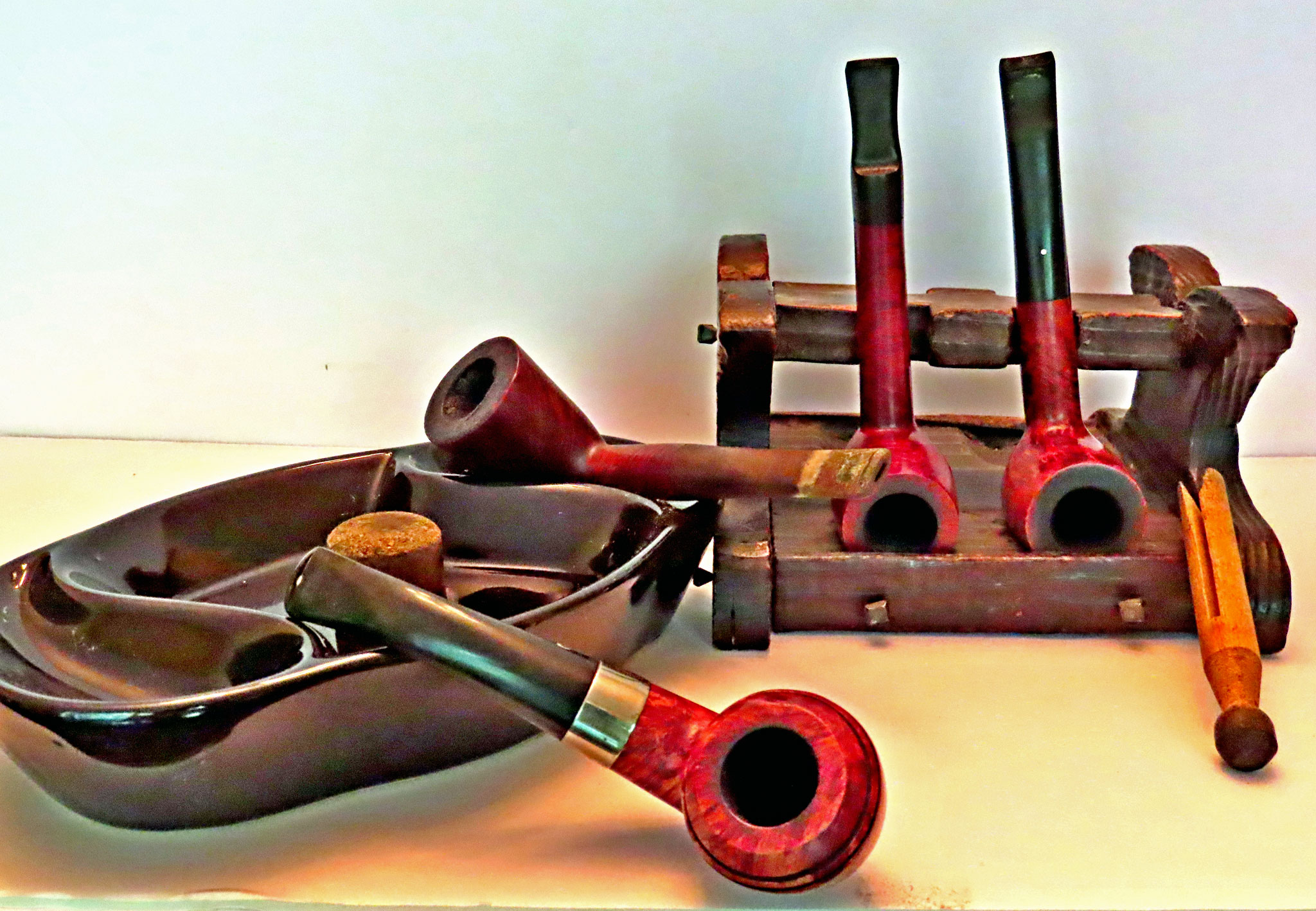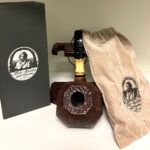
Call me an Anglophile. That’s okay. I become all misty-eyed when I think of the British Isles. Now, don’t get Pundit wrong, I’ve visited France and Germany and enjoyed tripping about in these destinations as well, especially Paris. We will always have Paris, kid!
But when I consider the pipe community connections to Great Britain, as well as family ancestry, it just puts a lump in the throat.
And our pipe history, of course, has consequential connections to the Indigenous people of America. Tobacco was in use by Native Americans ages before Europeans discovered the luscious leaf.
Here are a couple of links you can check out to bone up on your pipe smoking history. Just sayin’.
https://www.fumerchic.com/en/content/17-the-origins-of-the-smoking-pipe
https://www.tobaccopipes.com/blog/tobacco-pipes-history-looking-back/
https://en.wikipedia.org/wiki/Pipe_smoking#History
The European influence, as well as the Native American tobacco history, has huge meaning for us today.
Native Americans were smoking tobacco leaf eons before our European brethren found out about the pleasures of pipe tobacco puffing.
And then there is our link to the Revolutionary War era when farmers planted tobacco and puffed away in inns and taverns.
Our relations, both personal and global, with Europe, however, serve us so well today.
Just think of our many hand-carved pipe purchases or else manufactured in Europe, giving us some of the finest smoking instruments on the planet.
What has me thinking about my pipe collection is that 99.9 percent were crafted by European artisans. Not to say that I ignored our fabulous American pipe makers. Indeed, some of my finer smokers are American-made.
Now, before you run screaming out the door, let Pundit explain a bit.
I am enamored of Sir Winston Churchill, the famous cigar smoker, and an occasional pipe puffer. I’ve mentioned my fascination with the man who “took the English language” to war in WWII in this space many times.
But other influential Europeans have also guided my pipe buying decisions, such as authors C. S. Lewis, J. R. R. Tolkien, the ground-breaking philosopher, Bertrand Russell, Albert Einstein, of course, and the list could continue into the night, if you get the Pundit’s drift.
Not to be overlooked, of course, is the ultimate pipe-smoking maestro of the written word, Mark Twain, who consumed cigars and pipe tobacco in massive quantities and wrote some of the finest fiction and non-fiction in our literary history.
If you’ve never visited the Twain home in Hannibal, Mo., then that is a shrine you need to put on your bucket list. The Pundit wanted to move to Hannibal after a visit.
Let’s not forget the Southern iconic author William Faulkner who loved his Dunhill 965 tobacco and Prince Albert when he depleted his 965 stash.
And of course, the Pundit has visited Faulkner’s idyllic farm home near Oxford, Miss. Took the requisite tour and was astounded to see the Nobelist author’s tweed coat hanging on a hook in a hallway.
A docent told me they found a pipe and a can of Prince Albert in the coat and left it hidden in the pocket.
You know the Pundit asked to search the pocket, but the docent turned a cautious eye toward me and shook his head in a vigorous, unmistakable, and resounding, “no!”
So, where is all this leading? Glad you asked!
Europe for the Pundit, who has visited many an American military cemetery in France, is special. Here lie American soldiers who gave up all for freedom.
Plus there is nothing that quite matches a walk down the Royal Mile in Edinburgh, Scotland. And then stopping off at Sandy Bell’s famous folk pub.
The Pub, which is like a social club in Scotland (you pick your Pub early in life and mostly stay with it to the end), is just the place for a pipe, and ale or stronger, and a song. Traditional music from the United Kingdom, and Ireland, of course.
But a wee dram or a pint or two will do ye. And, for goodness sakes, don’t attempt to drink it up with the pros. You lose every time.
As living proof, I tried to learn the bodhran, an ancient Celtic drum that takes some bouncy rhythm thing in your bones to play well. All the while, clenching a new Peterson Pipe with some very strong leaf.
Add too much Guinness Extra Stout and you will be hobbled like a Colorado cowboy lassoing a wild calf on the plain.
Walking in the sunshine the other morn, with pipe firmly clamped, these thoughts began rummaging around in my pipe dreaming mind.
You get the picture. But it is also fond to recall younger days, traveling, walking, and now today having to find sunny morns for pipe and footfalls.
Pipes hold treasured memories and that is why the Pundit is in sort of a pensive mood.
I’m going through the precious collection and wondering what to do. A nagging notion has invaded the Pundit’s thoughts.
Perish the thought of selling some of the precious herd! But, what to do?
I thought I would never reach a stage in life to think of such a thing as parting with a single pipe. I still have my first pipe, as well as my last purchase.
The herd is well over 200 pipes today. In all these 45-plus years of smoking my beloved pipes, I have only traded one for a new pipe, which I regret to this day.
I rummage through my pipes like you would a family photo album. You recall places and times, smiling faces, birthday events, weddings, births, vacations, and on and on.
That’s the way it has become for me and my collection. Each pipe springs forth a memory long ago lost at a crossroads.
Pundit may be pushed into parting with a few of his pipe treasures just to thin out the herd for future purchases, perhaps, or having to downsize in other areas of life, i.e. books, newspapers, magazines, do-dads, etc.
Mayhaps pensive is too soft a word for my thoughts on this crossroads of time and pipes. I leave you with the Bard’s thoughts on challenges and future decisions:
Friar Laurence is advising Romeo, who wants to hurry to Juliet and the wise Franciscan tells the anxious Romeo he must go wisely and slow. They stumble that run fast–Act II, Scene III, Shakespeare’s Romeo and Juliet.
And now a parting thought from one of the great pipe-smokers and children’s book authors, who knew a truer than true thing or two about a word or two, Theodor Seuss Geisel. Better known as Dr. Seuss, Geisel was born March 2, 1904, Springfield, Mass., and died Sept. 24, 1991, San Diego, Calif.:
Sometimes the questions are complicated and the answers are simple.

Photo by Fred Brown

















